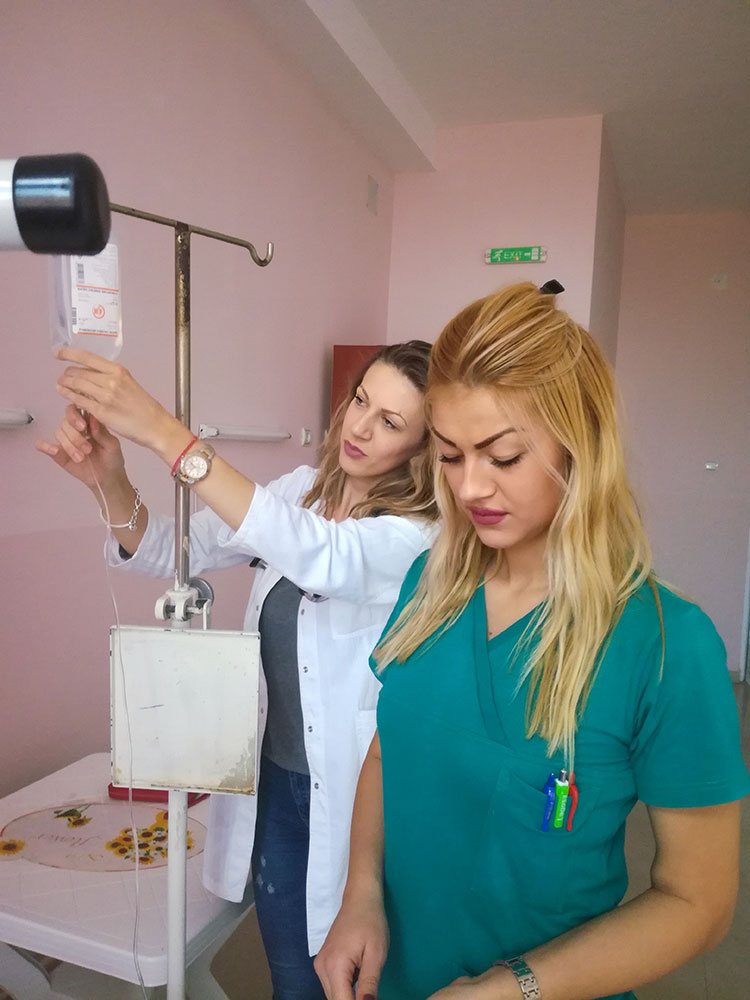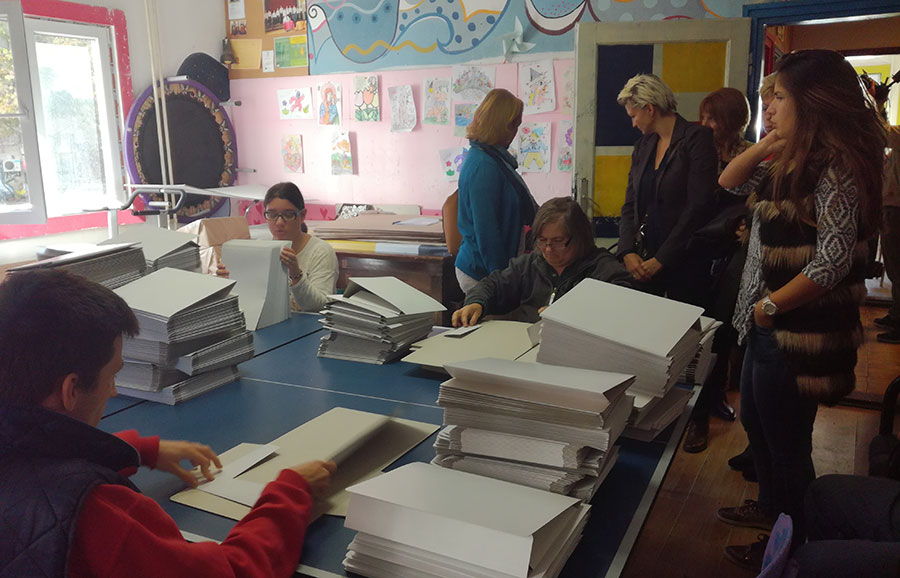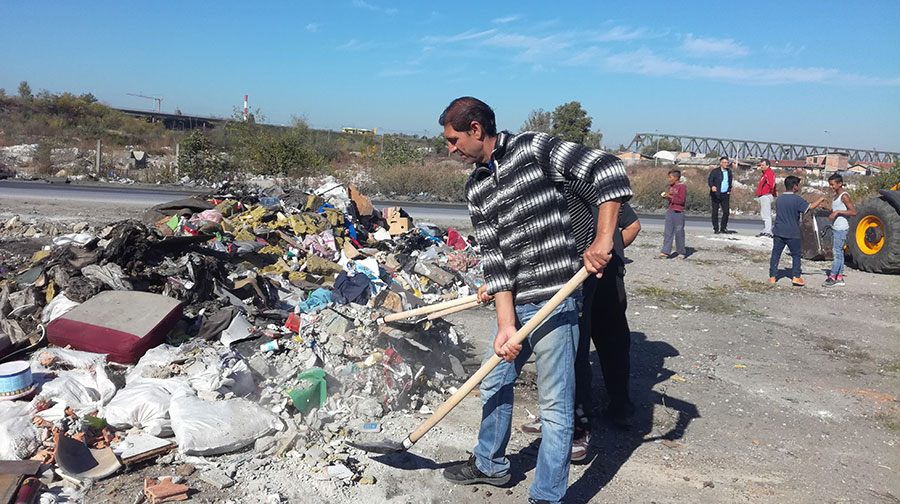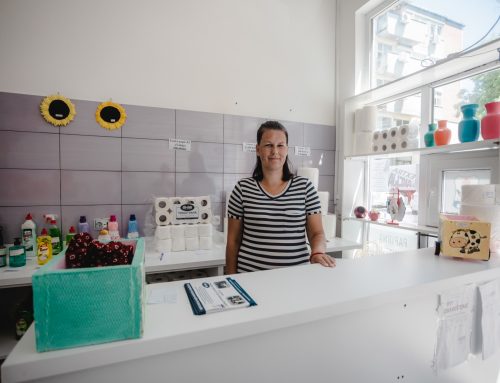Public works are among the most well received active employment policy measures taken by the National Employment Service. Primary beneficiaries of the measure are the hard-to-employ and socially vulnerable groups who, by being engaged in public works, are offered a chance to earn regular income, leastwise in a short run, and maintain and improve their skills. In 2017, EU funding has helped to take into employment over 1,300 people through public works.
At the modernly equipped palliative care ward of the General Hospital in Cuprija, public works have helped to employ 10 young doctors and paramedics. They have between 27 and 30 years, a happy smile on their faces and enthusiasm; they are in love with their jobs and eager to work. Even the relatively low wages of RSD18,000 could not pour cold water on the idea of sending job applications, they say.
 “This is a big deal for me. I broadened my experience in working with patients. When in palliative care, you get to learn stuff you cannot learn from books. Also, I am now much more confident with patients, which, when you’re a doctor, is a priceless skill,” says a young doctor by the name of Jelena Djordjevic who graduated from med school four years ago and has been unemployed ever since.
“This is a big deal for me. I broadened my experience in working with patients. When in palliative care, you get to learn stuff you cannot learn from books. Also, I am now much more confident with patients, which, when you’re a doctor, is a priceless skill,” says a young doctor by the name of Jelena Djordjevic who graduated from med school four years ago and has been unemployed ever since.
Milena Spasic says she too has sent several job applications all over Serbia, adding that finding a job is really hard. This is why she decided to sign up for the job at the hospital, in an effort to keep up pace with her profession and let the employer “keep an eye on her,” hoping to boost her chance of being offered permanent employment. Their colleagues share her hopes of becoming full time employees of the Hospital in Cuprija once their four-month contracts expire.
Due to their disability, Kristina, Andreja and Cezar are categorised as the hard-to-employ. They too have been hired through public works scheme to enter data into the virtual library of High Medical School of Vocational Studies in Cuprija. All of them have previous experience in finding a job through public works. Although they all agree that this is a short-term solution and hope to find more steady jobs, they say that public works allow them to gain their first work experience, become familiar with working with other people and make contacts that may help them find a job.
 Nezded Coli is one of three people hired on cleaning up Vuk Vrcevic Roma settlement in Palilula municipality in Belgrade. This job means a lot to him, he says, because he has a family for which he has to provide decent living.
Nezded Coli is one of three people hired on cleaning up Vuk Vrcevic Roma settlement in Palilula municipality in Belgrade. This job means a lot to him, he says, because he has a family for which he has to provide decent living.
“Also, our job here is very important. We are helping the people who live here by cleaning up their living environment and improving their hygiene,” Coli said.
His fellow worker Nijaz Kruezi thinks it is better to go out there and get a job than stay at home and wait for charity. His entire family has got a job thanks to public works. The money they earn during those four months means a lot to this large family.
This year’s public works carried out within the project EU Support for the harder to employ are coming to an end on 5 December. According to Muhamed Osman of Romski napredak association, which is in charge of the public works carried out in Vuk Vrcevic settlement, future public works should include some sort of training so that people can develop skills for other jobs other manual labour.
They are all happy with their temporary jobs and would take part in public works again if offered a chance, even though they all hope to find permanent jobs soon.




